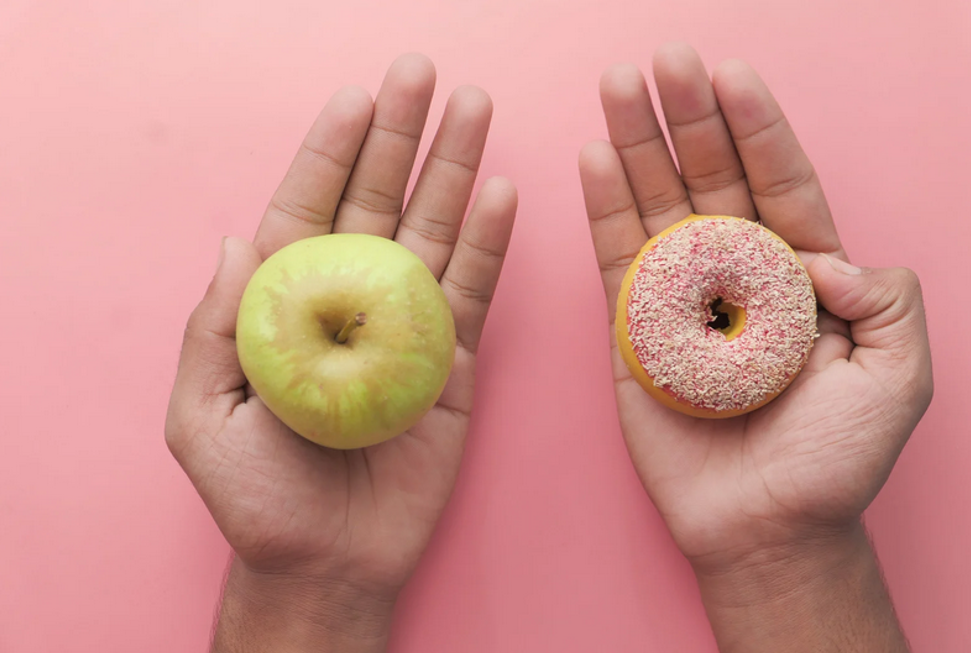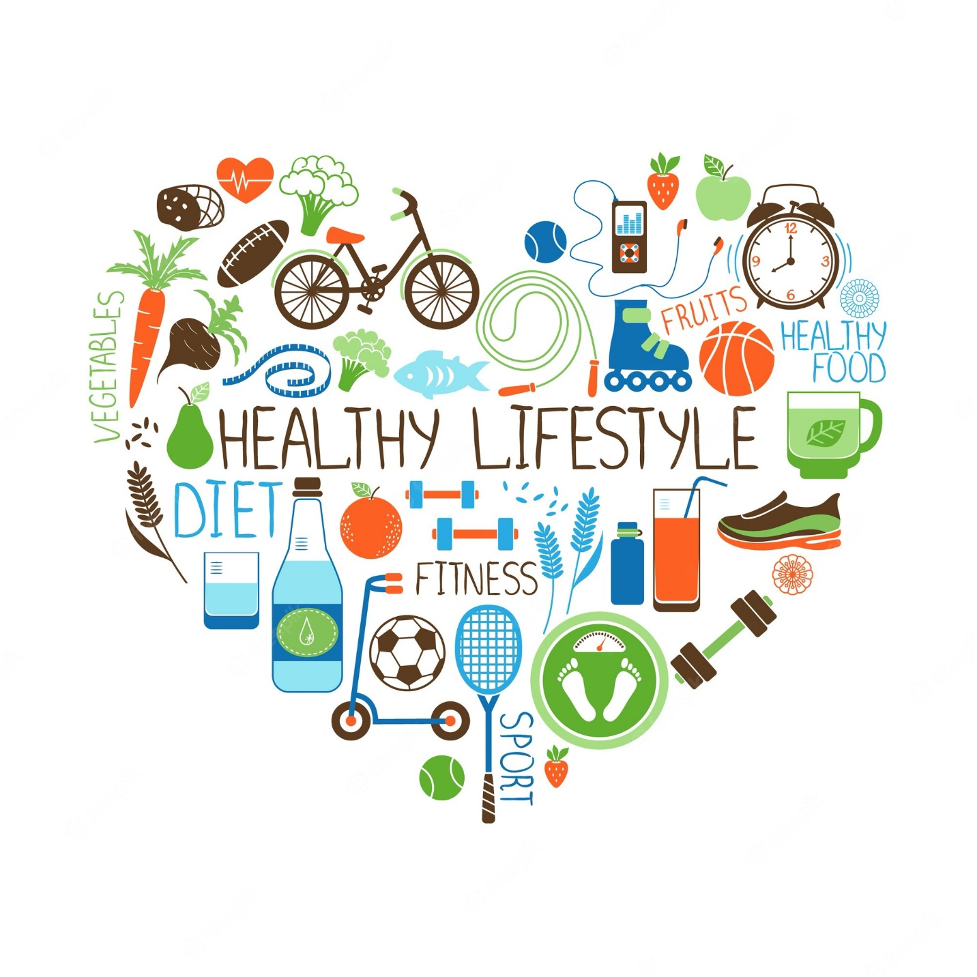Have you ever wondered why you keep repeating old patterns with your diet? Do you long for a change? Do you crave something different? Do you crave a healthier life? Do you feel like you are on an endless cycle of yo-yo dieting? If yes, you are not alone. Many people have struggled with their eating habits and weight. The good news is that changing your habits is easier than you think. Society has become obsessed with counting calories and losing weight. As a result, most people have lost sight of what it means to eat healthily. But don’t worry, you don’t have to be a nutritionist to follow the mindful eating journey. All you need is a little bit of motivation. The mindful eating journey is a structured plan that guides you through changing your patterns with your diet. It provides you with self-awareness, skills, support, and an understanding that you are not alone on your journey.
In this article, you will find the most effective and accurate guides to a healthy lifestyle – including real-world guidance, support, and strategies for starting and maintaining (or maybe even restoring) an eating regimen. In scientific terms: nutrition means the food we need as living beings so that our cells can survive. We can easily get nutrients from supplements like vitamin pills, but it is not always about what nutrients you take in, it is about what you exactly eat.

Before we start, you need to familiarize yourself with the definition of the following words.
Well-Being: Build healthier relationships with food, exercise, and the body, including conscious and intuitive eating, life-enhancing movements, and body acceptance.
Food Peace: Separate yourself from irregular eating patterns, including thoughtless eating, emotional eating, and chronic diets.
Self-Care: Feel more comfortable with how you eat and take care of your health and well-being and have more flexibility in the face of emotional storms and the pull of diet culture.

Why is nutrition important?
Getting enough nutrients is essential for your health. They are called nutrients because they are required in small quantities to sustain life and keep our cells functioning properly. Many of us forget to eat enough of certain nutrients, which is why it’s important to understand what they are and why they are so important.
Nutrients are the essential elements required by the cells of all plants and animals to sustain life. The nutrients an organism has access to are largely determined by its diet. Nutrients in food are so diverse that it’s near impossible to get them all from just one meal. Fortunately, many of these nutrients are also found in the food we grow and harvest – so eating what you produce makes it easier to get all your daily nutritional requirements.

Mindful Eating
When it comes to eating, most of us are guilty of falling victim to the traps. We know that it’s important to eat nutrient-dense, healthy meals but our minds get in the way of this being the reality for so many people.
We may know that eating too much junk food is not good for us, but we can be so reliant on it to make ourselves feel good. As a result, we don’t choose healthy options often enough or we have a hard time letting go of old behaviors. On top of this, we may also have a hard time remembering to slow down and really take the time to savor our food.
A mindful approach to eating can not only help with having a healthier diet, but it can also help you to feel more at peace with the process of eating and your relationships with food and your body.

Definition of mindful eating: “Attention to the experience of eating with all our senses (seeing, tasting, hearing, smelling, feeling)”; The concept of “mindful eating” is one that isn’t new, but it’s something that is becoming more and more mainstream as it’s an excellent way to improve your relationship with food and your body.
What is the mindful eating journey?
The mindful eating journey is a structured plan that guides you through changing your patterns with your diet. It provides you with self-awareness, skills, support, and an understanding that you are not alone on your journey. The mindful eating journey helps you build a healthier relationship with food, as well as your body. It also brings about inner peace and allows you to decrease emotional eating, a condition that many people experience.

Eating disorders
Eating disorders are serious mental illnesses that affect thousands of people around the world. They are characterized by a persistent struggle with eating and a fear of weight gain. Eating disorders can cause you to alter your eating habits in ways that harm your health and wellbeing.
- Anorexia nervosa
Anorexia is an eating disorder and mental illness that causes people to limit their food intake to very low levels. They are often very thin and are afraid of gaining weight. Despite the very mild framework, anorexic people strongly believe that they are overweight. An anorexic person usually combines low food intake with excessive exercise and constant monitoring of their weight. Women with anorexia may also stop menstruating.
- Bulimia nervosa
Bulimia is an eating disorder and mental illness where sufferers binge eats and then purge. The person will often eat large amounts of food in a relatively short amount of time and then try to remove the food from their body by forcing themselves to vomit or by taking laxatives. Most people with bulimia have a normal weight. Bulimia is also linked with other mental illnesses such as anxiety and depression, which is why bulimia sufferers have an increased risk of suicide.
- Binge eating disorder
Overeating disorder is a mental illness in which people with overeating behavior, whether they are hungry or not, eat large amounts in a short period of time. After that, they often feel very guilty and ashamed. Unlike bulimia nervosa, people with bulimia nervosa do not clear up after vomiting (vomit or use laxatives). A person with overeating disorder may fast sporadically in response to their feelings after overeating.
Early Signs You Need to Watch Out For
To prevent an eating disorder from becoming a complete obsession, it is essential to be able to recognize the early warning signs. However, unfortunately, a person with an eating disorder usually does his or her best to hide any signs of the problem, which makes it very difficult to diagnose and confirm. The person may also deny the problem.
Watch out for any changes in eating behavior and psychological reactions to food, as well as changes in physical appearance. The early signs of an eating disorder can be very different because no two people with eating disorders behave the same way. However, some common symptoms include:
- Obsessive-compulsive disorder (e.g., counting calories and skipping meals)
- Lots of food is lost and evidence of vomiting or laxative use (frequent trips to the toilet, especially after meals)
- Excessive exercise
- Sudden weight loss
- Women who do not have menstrual periods and face persistent fatigue
- Obsession with body weight and distorted body image (e.g., they believe that they look fat when they are clearly very thin).
What are the solutions?
Practicing a more conscious approach to eating can increase the enjoyment of your meals, reduce overeating, help digest food well, reduce anxious thoughts about food, and improve your mental relationship with food.
Here are some tips to help you practice eating consciously:
- Prioritize mealtime – Try to sit for at least 15 minutes and enjoy your meal.
- Avoid distractions while eating. It is impossible to really enjoy eating while our attention is elsewhere. Ask yourself how much do you eat in the car? While watching TV? Or in front of your computer? Eating in this situation is usually thoughtless and can lead to overeating, choosing unhealthy options, or not enjoying your meal. Keep notes of what you learned from the process. This will help you to become more aware of those situations and avoid them.
- Avoid rushing around mealtime. Schedule a meal when you have enough time, and it is unlikely that your food will be interrupted.
- Serve your food on a plate/bowl. Try to avoid eating food in the package, ice cream tub, container, etc.
- Rest your cutlery next to the plate between bites and make a conscious effort to chew your food thoroughly.
- Eat only until you are 80% full (meaning you are full but not too much).
- Take time for the real taste of your food. Use your senses! Before eating, pay attention to the appearance, smell, and overall attractiveness of the food you want to eat. Identify the food components you crave during the meal. What does it taste like? What can you smell? How does it feel in your mouth?
- Ask yourself how you feel about the food you eat. Do you feel joy, pleasure, regret, guilt, stress, or despair? Ask yourself what thoughts the food recalls. Does it create memory, fear, or belief? Before and after meals, ask yourself how your body feels. Do you feel energized, or lethargic? Is your stomach full, nauseous, and empty?
- If possible, prepare your meals. The act of preparing food – touching, tasting, and smelling – may improve your psychological relationship with food.
- Notice the difference that good food (whole, fresh, seasonal, and under-processed foods) makes in your overall mood. When you eat better, you will feel better both physically and mentally.

Stay motivated and make small changes daily
If you were to ask someone if they were motivated to change their habits, you would probably hear a different story than what you are experiencing. Most people are not motivated enough to make the small changes that will lead to a healthier life. You’re not most people; you want to move forward with a healthier relationship with food and your body. If you need a push, try asking a few people you know what they would change in their life if they had the chance to go back and do it over again. This will provide you with a sense of motivation and help you stay driven with your mindful eating journey.

